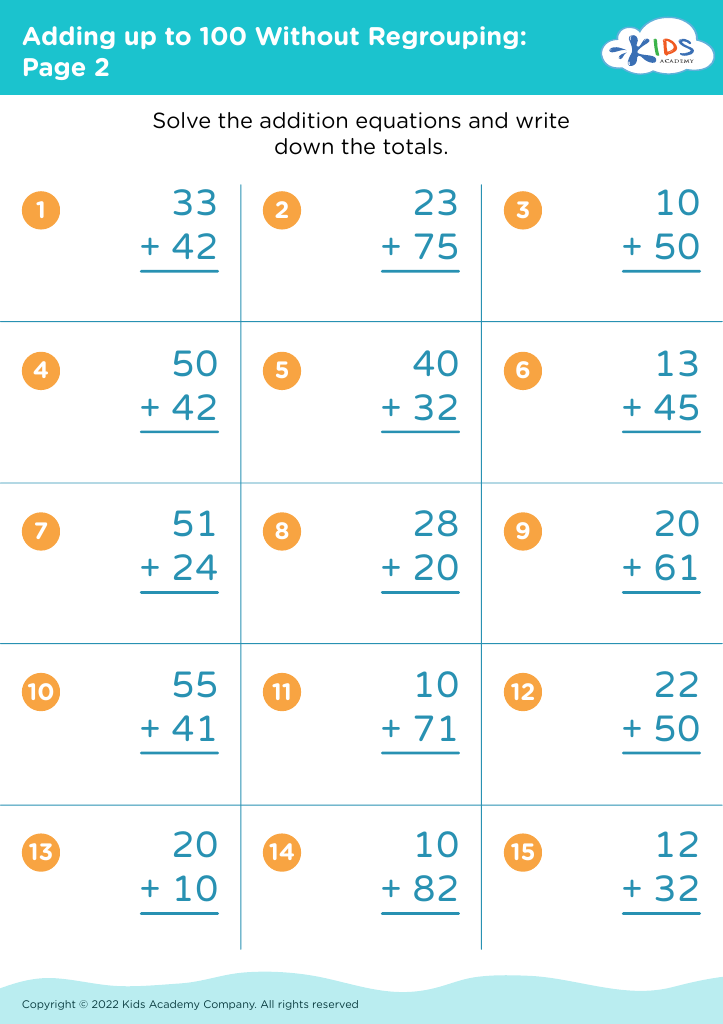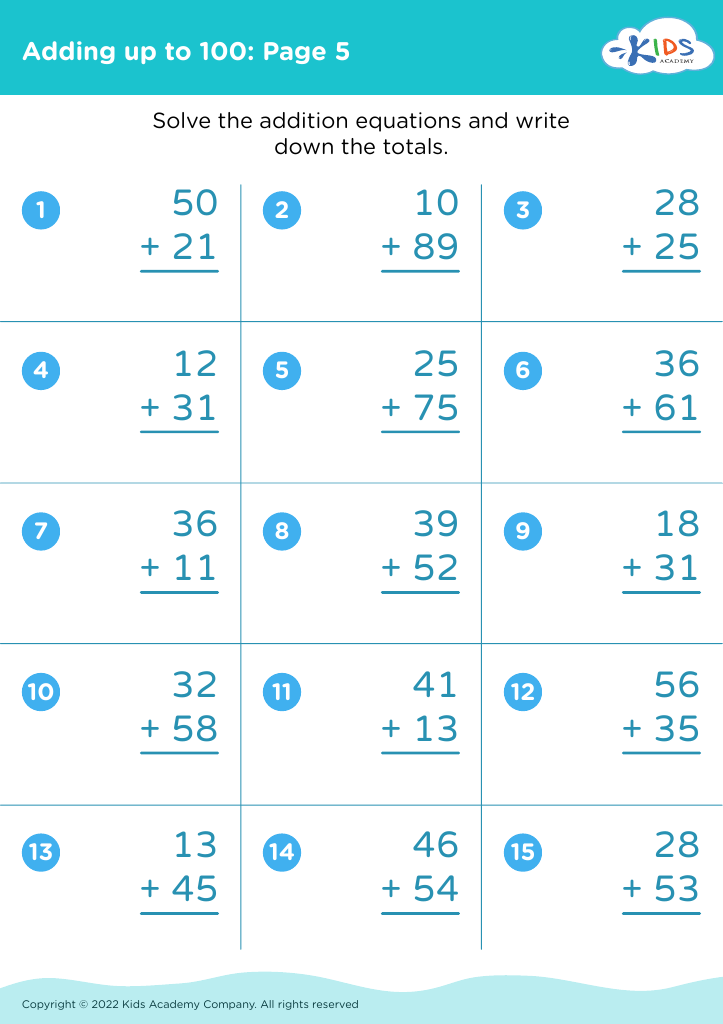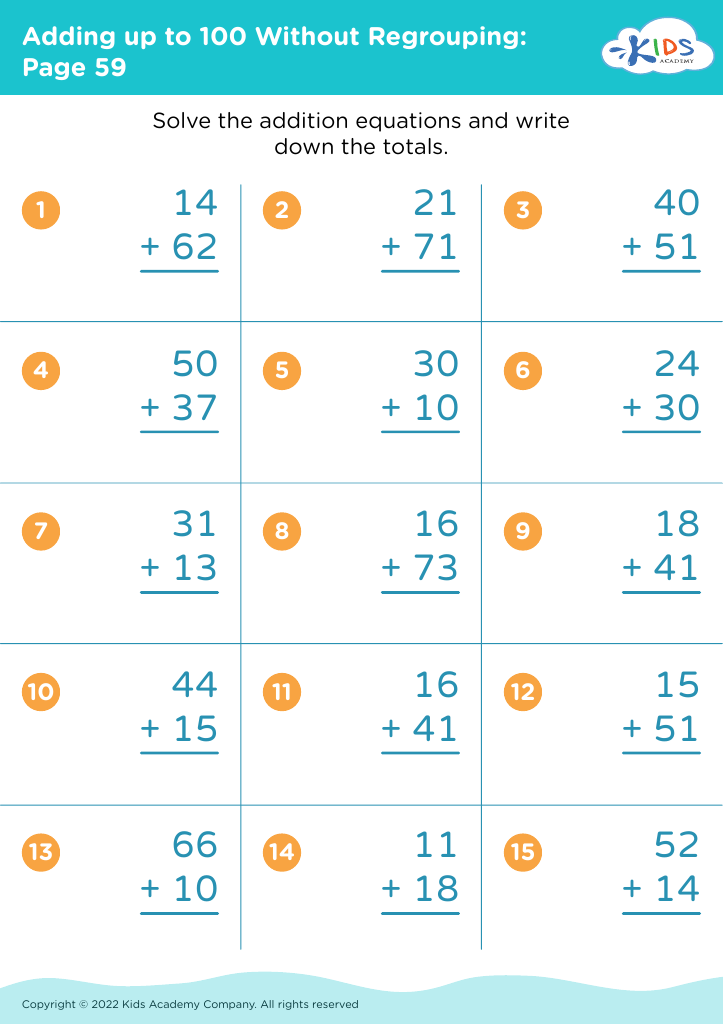Following instructions Adding up to 100 Worksheets for Ages 6-8
4 filtered results
-
From - To
Enhance your child's math skills with our "Following Instructions Adding up to 100 Worksheets for Ages 6-8." Designed specifically for young learners, these engaging worksheets help kids practice addition within 100 while developing critical skills in following instructions. Packed with fun and interactive activities, each worksheet guides students through mathematical problems, improving their ability to listen, comprehend, and execute tasks accurately. Perfect for use at home or in the classroom, these resources aim to make learning seamless and enjoyable. Equip your child with essential math proficiency and a strong foundation for future academic success. Visit our website to download today!
Fostering the skills of following instructions and understanding basic addition up to 100 is crucial for children aged 6-8 as these skills form the foundation of their academic and life success. At this age, children are in a critical period of cognitive development where they are honing their ability to concentrate, process information, and execute tasks methodically. Following instructions is essential because it helps children learn to pay attention, understand cause and effect, and develop their listening and comprehension abilities. These skills not only support academic success but also nurture essential life and social skills, such as cooperation and respect for rules.
Simultaneously, learning to add up to 100 aids in strengthening mathematical thinking and numeracy, key skills required in everyday life. It enhances problem-solving abilities, logical reasoning, and introduces children to the concept of place value—a fundamental aspect of broader mathematical understanding. Together, these skills ensure that children are prepared for more complex tasks and subjects as they progress in their educational journey.
By prioritizing these two areas, parents and teachers are equipping children with tools that enhance their overall cognitive development, build confidence, and lay down a strong groundwork for advanced learning. It truly starts with mastering the basics during this formative stage.






%20(1).jpg)










